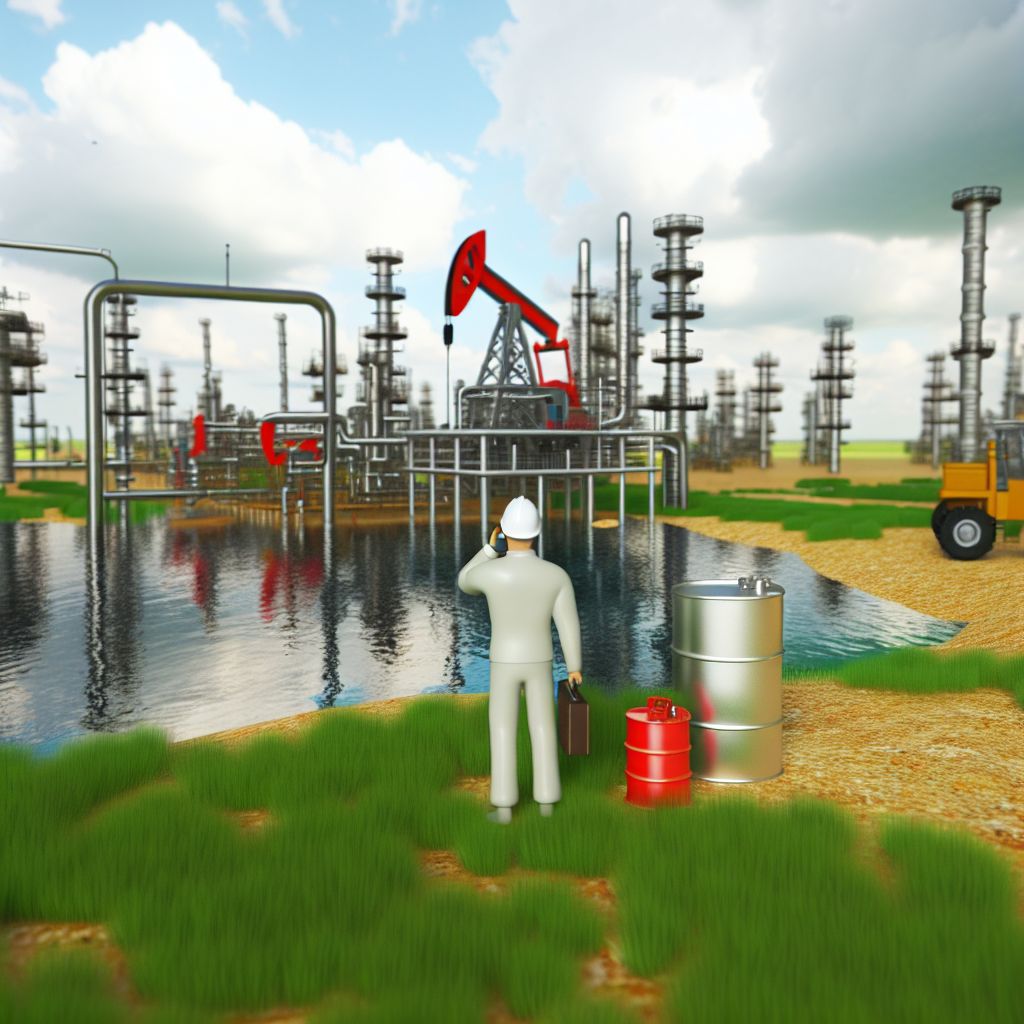Deutsch: Ölindustrie / Español: Industria petrolera / Português: Indústria do petróleo / Français: Industrie pétrolière / Italiano: Industria petrolifera
Oil Industry in the quality management context refers to the sector involved in the exploration, extraction, refining, transportation, and marketing of crude oil and its derivatives. Quality management within this industry is crucial due to the high-risk nature of oil operations, the significant environmental impacts, and the stringent regulatory standards governing product quality and safety. Implementing effective quality management systems (QMS) in the oil industry ensures that operations are carried out safely, efficiently, and in compliance with international standards, such as ISO 29001, which is specifically designed for the petroleum, petrochemical, and natural gas industries.
Description

Quality management in the oil industry encompasses a wide range of activities, including ensuring the integrity of drilling equipment, maintaining the quality of crude oil during transportation, achieving consistency in refining processes, and guaranteeing the safety and reliability of petroleum products. The industry faces unique quality challenges, such as managing the variability of raw material quality, controlling emissions, and preventing spills and leaks that can lead to environmental disasters.
Application Areas
Quality management is applied across all facets of the oil industry, including:
- Exploration and Production: Ensuring the quality and safety of exploration and drilling operations to prevent accidents and environmental harm.
- Refining and Processing: Applying rigorous quality controls in refining processes to produce fuels and other products that meet specific quality standards.
- Transportation and Storage: Managing the integrity of pipelines, tankers, and storage facilities to prevent contamination, leaks, and spills.
- Environmental and Safety Compliance: Adhering to environmental regulations and safety standards to minimize the impact of operations on health and the environment.
Well-Known Examples
Notable examples of quality management in the oil industry include:
- BP Deepwater Horizon oil spill: A devastating incident that highlighted the importance of quality and safety management in preventing environmental disasters.
- Implementation of ISO 29001: Oil and gas companies adopting this standard to improve the reliability of their supply chain and enhance the quality of their products and services.
Treatment and Risks
The consequences of inadequate quality management in the oil industry can be severe, including environmental pollution, legal penalties, and significant financial losses. To manage these risks, the industry employs various quality management practices, such as:
- Regular Audits and Inspections: To ensure compliance with quality standards and regulatory requirements.
- Risk Management Practices: Identifying and mitigating risks associated with oil exploration, production, and transportation.
- Continuous Improvement Programs: Utilizing feedback and performance data to improve quality management processes continuously.
Examples of Sentences
- "In the oil industry, quality management is not just about product quality; it's also about ensuring the safety of operations and minimizing environmental impact."
- "Adhering to high-quality management standards in the oil industry helps companies mitigate risks, comply with regulations, and ensure the reliability of their operations and products."
Similar Terms or Synonyms
- Petroleum industry quality control
- Quality assurance in the oil sector
Weblinks
- industrie-lexikon.de: 'Ölindustrie' in the industrie-lexikon.de (German)
Summary
Oil Industry in the quality management context emphasizes the critical role of quality control, safety, and environmental compliance in every aspect of the industry's operations. From exploration and drilling to refining and distribution, implementing a robust quality management system is essential for minimizing risks, protecting the environment, and ensuring the production of high-quality petroleum products. The industry's commitment to quality management not only safeguards its operations but also contributes to sustainable environmental practices and the global energy supply's reliability.
--
Related Articles to the term 'Oil Industry' | |
| 'Setup' | ■■■■■■■■■■ |
| Setup in the quality management context refers to the preparation, configuration, or organisation of . . . Read More | |
| 'Audit' | ■■■■■■■■■■ |
| An Audit in the quality management is an Evaluation of a person, organization, system, process, Enterprise, . . . Read More | |
| 'Instrumentation' at top500.de | ■■■■■■■■■ |
| Instrumentation in the industrial and industry context refers to the science and technology of Measurement . . . Read More | |
| 'Compatibility' | ■■■■■■■■■ |
| Compatibility in the quality management context refers to the ability of different components, systems, . . . Read More | |
| 'Fastener' | ■■■■■■■■■ |
| A fastener in the context of quality management refers to a Device or component used to mechanically . . . Read More | |
| 'Oilfield' at top500.de | ■■■■■■■■ |
| Oilfield refers to a region with abundant underground reserves of crude oil. In the industrial context, . . . Read More | |
| 'Qualification' | ■■■■■■■■ |
| Qualification in the context of quality management refers to a systematic process of evaluating, assessing, . . . Read More | |
| 'Risk' | ■■■■■■■■ |
| Risk is the potential of loss (an undesirable outcome, however not necessarily so) resulting from a given . . . Read More | |
| 'Calibration' at top500.de | ■■■■■■■■ |
| Calibration in the industrial context refers to the process of adjusting and verifying the Accuracy of . . . Read More | |
| 'Disruption' | ■■■■■■■■ |
| Disruption in the context of quality management refers to any event, change, or Interference that interrupts . . . Read More | |
